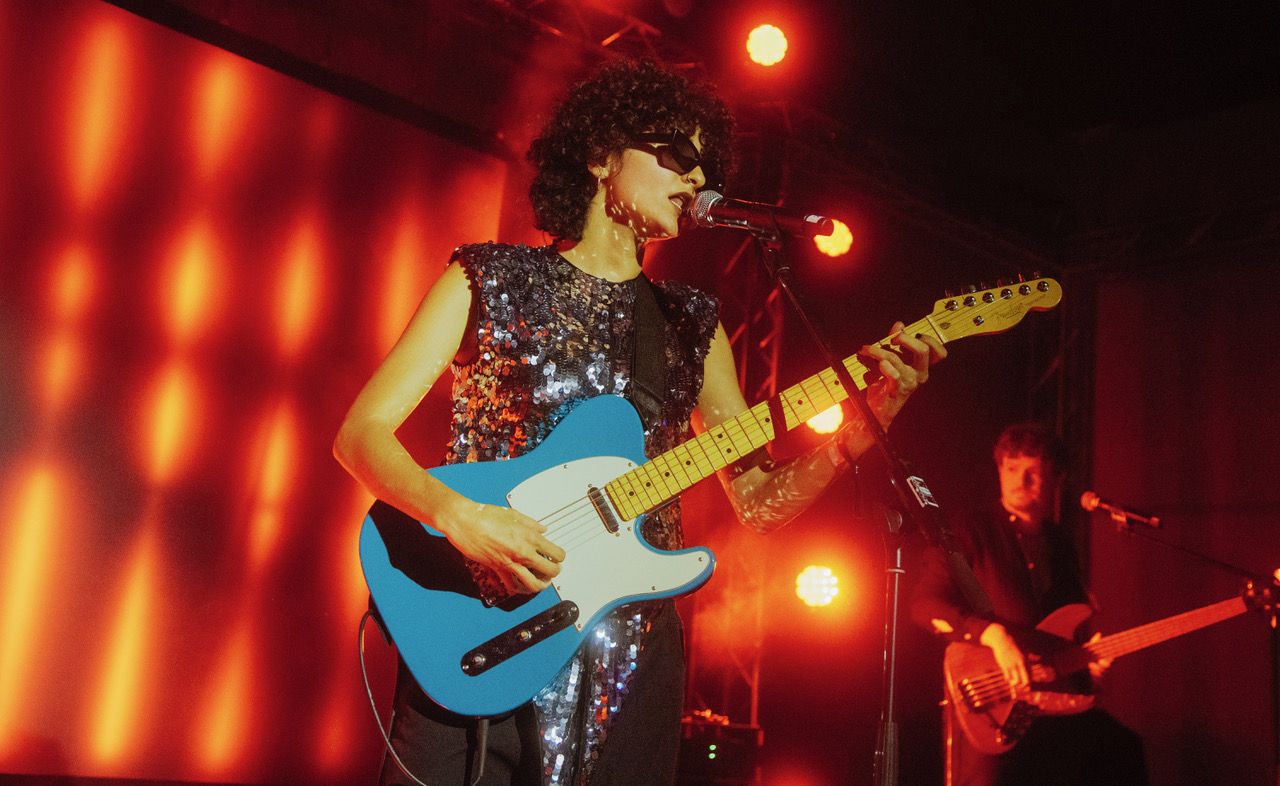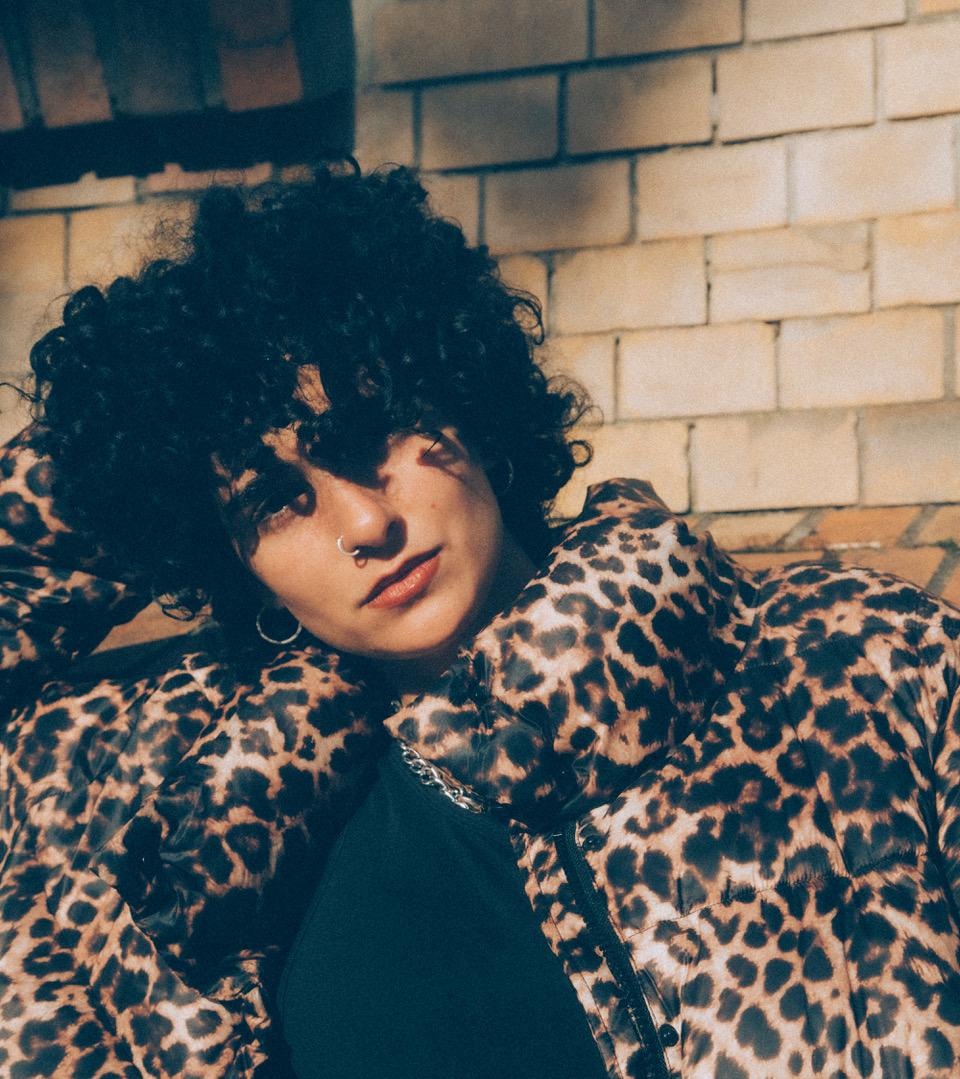



Can you remember how you discovered your voice and if it was clear for you early on that you wanted to become a singer?
I was kind of always doing music, like at the age of 10, I made a rap album and sold it to my classmates in school [laughs]. Since the day I remember myself, I was always making music, and I was always kind of active about it. My sister used to play guitar—she took a couple of lessons and then she stopped. So she had a guitar in her room and I just picked it up, and although it was out of tune I still played it until I wanted to know what I'm doing. So I started studying classical guitar. I just wanted to play chords and sing songs, you know? But thanks to my parents I somehow ended up in a classical conservatory kind of situation. And it was amazing!
Though I never was a homework person and never practiced as much as I needed to, it gave me a lot of technique and a lot of freedom. After high school, I started playing with local bands in the Haifa underground scene, in clubs and bars. And then, around 16, I started performing my own songs that I’d been writing since I can remember. I never thought of becoming a singer. I thought of myself as musician; I am a musician at heart. And singing just came along the way. I started singing my own songs and realized, Oh shit, I’m out of tune. Then I started working on it a bit, being mindful about it. And finally, I discovered a very beautiful relationship with my voice.
You mentioned the underground scene in Haifa. In many of the places you perform, like Berlin, you seem connected to the underground scene. What do you find there, especially in comparison to playing a concert on a big stage?
I find community, first of all. A community that is based on, built on, and crafted on shared values. And I also find authenticity: a relationship between audience and artist that is familiar in a way, like family… It's all about context, right? Because if you look at the world today, it's very corporate, it's very capitalist. It's denying the very basic existence of people in the most structural and systematic way. The underground is creating and engaging in spaces that are genuine and value driven, not necessarily profit driven. That are community driven and not numbers driven or algorithm driven; that are impact driven, not marketing driven. Something there just hits different and there's an immediate response to the music.
That doesn't mean that I don't like to play big shows. We just played a show in front of 5,000 people in Morocco and it was fucking beautiful. It's a crazy energy. 5,000 people coming together and exchanging energies, feelings and music. But still, you are right: My music has always come out of the underground and it’s also always centering the underground.
And on your journey to discover your voice, who are the voices that had the biggest influence on you?
Luckily the Palestinian scene is filled with pioneers and amazing, really inspiring figures and people. Kamila Jubran is definitely a pioneer in every sense of the word. Also Terez Sliman, with whom I did a song on my album. Or Tamer Nafar, who's basically like one of the first people to ever rap in Arabic. He's a pioneer in every sense of the word… In the scene back home, there's a massive powerhouse of creators and innovators.
The people in my community are musicians in a very specific geopolitical context, in which your identity is not valid, not legitimate; in which your language and your heritage and your culture is constantly under arraignment… you are an artist representing your community and finding your voice. Now living in Berlin, I still feel very inspired by my peers and by my role models from the scene back home. They really navigate through extreme difficulties. Since the war, since October, none of my friends were able to perform normally back home. Almost nobody released any music… Part of it is because of the collective grief that we're all going through, but also since October 7th, a bunch of Palestinian citizens of Israel have been arrested and persecuted and got attacked for things like a Facebook post or an Instagram post… To be an artist in this climate is a lot.
How do you deal with all this on a personal level? Where do you find your sources of energy or of hope?
It’s a very hard question. It's an incredibly difficult time. Hope is an active practice. I think we don't have the luxury of losing hope, you know? It’s not big things that give me hope, it's actually the small things. It's friendships, music… When I have a show, and I feel like I've given something back to my community, that empowers me. Actually “generosity” and “giving” give me a lot of hope and strength… family, love—the good in people, I guess.
And looking at the music industry, what gives you hope or what is your vision for it?
I hope for a music industry that values impact and integrity more than money, that puts values and principles over reach and craft over content. There are so many initiatives that are creating long-term, sustainable and new structures, and new systems that are putting the artists in the center, orthat think about eco-friendly tours while booking the shows.
The thing about imagining the future is, you have to be very proactive in the present. Because otherwise the future is just going to happen. So my answer to this is, Let's reinvent structures and focus on sustainability instead of instant profit. And let's take care: let's put the artist as a priority because they're never a priority in this industry. Let's center the mental health of the artist. And let's think about the planet when we are traveling around it and performing.

In the art music scene, we still have this idea of l'art pour l'art, of autonomy in the arts as a quality factor. How do you think about this personally? How's the connection for you between activism and art? Where do you find it difficult and where does it combine naturally for you?
I think activism comes from the word “active” or “act.” Do I want to be an activist? I don't think I ever had a choice… You can be passive, or you can be active, and I think that—in a world full of extremes—the most natural human thing is to be a radical, as a human instinct, as a survival instinct. If you take climate change, for example: if we're not proactive about climate change, we're going to be living on boats or on submarines, or we're not going to be living at all.
Or looking at what’s happening in Palestine, for example, even if there's a ceasefire now at this very moment, there will be so much repair work that needs to be done, for generations and generations. I think being an activist and being proactive is the most human thing that anybody can do right now.
In our society people very often mix up extreme and radical. Extreme is actually the opposite of radical.
Can you elaborate on that?
Radical in Latin means radix, roots, reaching the roots. And I think it's something that is a lot more grounded, a lot more rooted in oneself, a lot more rooted in nature, a lot more rooted in sustainability, a lot more rooted in values.
To finish up, let’s get back to your music. What are you creating at the moment?
I’m working on a new project that’s going to be released in the beginning of 2025 and my goal in it is to touch on the sadness and the collective grief that comes with the war right now, as I feel that art is a place to reflect and to express. But I also think that art as a practice is about self-manifestation and self-affirmation. On a personal level and also on a collective level: use art as a form of proactive optimism, as a tool of empowerment, for both myself and for my people. ¶

Can you remember how you discovered your voice and if it was clear for you early on that you wanted to become a singer?
I was kind of always doing music, like at the age of 10, I made a rap album and sold it to my classmates in school [laughs]. Since the day I remember myself, I was always making music, and I was always kind of active about it. My sister used to play guitar—she took a couple of lessons and then she stopped. So she had a guitar in her room and I just picked it up, and although it was out of tune I still played it until I wanted to know what I'm doing. So I started studying classical guitar. I just wanted to play chords and sing songs, you know? But thanks to my parents I somehow ended up in a classical conservatory kind of situation. And it was amazing!
Though I never was a homework person and never practiced as much as I needed to, it gave me a lot of technique and a lot of freedom. After high school, I started playing with local bands in the Haifa underground scene, in clubs and bars. And then, around 16, I started performing my own songs that I’d been writing since I can remember. I never thought of becoming a singer. I thought of myself as musician; I am a musician at heart. And singing just came along the way. I started singing my own songs and realized, Oh shit, I’m out of tune. Then I started working on it a bit, being mindful about it. And finally, I discovered a very beautiful relationship with my voice.
You mentioned the underground scene in Haifa. In many of the places you perform, like Berlin, you seem connected to the underground scene. What do you find there, especially in comparison to playing a concert on a big stage?
I find community, first of all. A community that is based on, built on, and crafted on shared values. And I also find authenticity: a relationship between audience and artist that is familiar in a way, like family… It's all about context, right? Because if you look at the world today, it's very corporate, it's very capitalist. It's denying the very basic existence of people in the most structural and systematic way. The underground is creating and engaging in spaces that are genuine and value driven, not necessarily profit driven. That are community driven and not numbers driven or algorithm driven; that are impact driven, not marketing driven. Something there just hits different and there's an immediate response to the music.
That doesn't mean that I don't like to play big shows. We just played a show in front of 5,000 people in Morocco and it was fucking beautiful. It's a crazy energy. 5,000 people coming together and exchanging energies, feelings and music. But still, you are right: My music has always come out of the underground and it’s also always centering the underground.
And on your journey to discover your voice, who are the voices that had the biggest influence on you?
Luckily the Palestinian scene is filled with pioneers and amazing, really inspiring figures and people. Kamila Jubran is definitely a pioneer in every sense of the word. Also Terez Sliman, with whom I did a song on my album. Or Tamer Nafar, who's basically like one of the first people to ever rap in Arabic. He's a pioneer in every sense of the word… In the scene back home, there's a massive powerhouse of creators and innovators.
The people in my community are musicians in a very specific geopolitical context, in which your identity is not valid, not legitimate; in which your language and your heritage and your culture is constantly under arraignment… you are an artist representing your community and finding your voice. Now living in Berlin, I still feel very inspired by my peers and by my role models from the scene back home. They really navigate through extreme difficulties. Since the war, since October, none of my friends were able to perform normally back home. Almost nobody released any music… Part of it is because of the collective grief that we're all going through, but also since October 7th, a bunch of Palestinian citizens of Israel have been arrested and persecuted and got attacked for things like a Facebook post or an Instagram post… To be an artist in this climate is a lot.
How do you deal with all this on a personal level? Where do you find your sources of energy or of hope?
It’s a very hard question. It's an incredibly difficult time. Hope is an active practice. I think we don't have the luxury of losing hope, you know? It’s not big things that give me hope, it's actually the small things. It's friendships, music… When I have a show, and I feel like I've given something back to my community, that empowers me. Actually “generosity” and “giving” give me a lot of hope and strength… family, love—the good in people, I guess.
And looking at the music industry, what gives you hope or what is your vision for it?
I hope for a music industry that values impact and integrity more than money, that puts values and principles over reach and craft over content. There are so many initiatives that are creating long-term, sustainable and new structures, and new systems that are putting the artists in the center, orthat think about eco-friendly tours while booking the shows.
The thing about imagining the future is, you have to be very proactive in the present. Because otherwise the future is just going to happen. So my answer to this is, Let's reinvent structures and focus on sustainability instead of instant profit. And let's take care: let's put the artist as a priority because they're never a priority in this industry. Let's center the mental health of the artist. And let's think about the planet when we are traveling around it and performing.

In the art music scene, we still have this idea of l'art pour l'art, of autonomy in the arts as a quality factor. How do you think about this personally? How's the connection for you between activism and art? Where do you find it difficult and where does it combine naturally for you?
I think activism comes from the word “active” or “act.” Do I want to be an activist? I don't think I ever had a choice… You can be passive, or you can be active, and I think that—in a world full of extremes—the most natural human thing is to be a radical, as a human instinct, as a survival instinct. If you take climate change, for example: if we're not proactive about climate change, we're going to be living on boats or on submarines, or we're not going to be living at all.
Or looking at what’s happening in Palestine, for example, even if there's a ceasefire now at this very moment, there will be so much repair work that needs to be done, for generations and generations. I think being an activist and being proactive is the most human thing that anybody can do right now.
In our society people very often mix up extreme and radical. Extreme is actually the opposite of radical.
Can you elaborate on that?
Radical in Latin means radix, roots, reaching the roots. And I think it's something that is a lot more grounded, a lot more rooted in oneself, a lot more rooted in nature, a lot more rooted in sustainability, a lot more rooted in values.
To finish up, let’s get back to your music. What are you creating at the moment?
I’m working on a new project that’s going to be released in the beginning of 2025 and my goal in it is to touch on the sadness and the collective grief that comes with the war right now, as I feel that art is a place to reflect and to express. But I also think that art as a practice is about self-manifestation and self-affirmation. On a personal level and also on a collective level: use art as a form of proactive optimism, as a tool of empowerment, for both myself and for my people. ¶